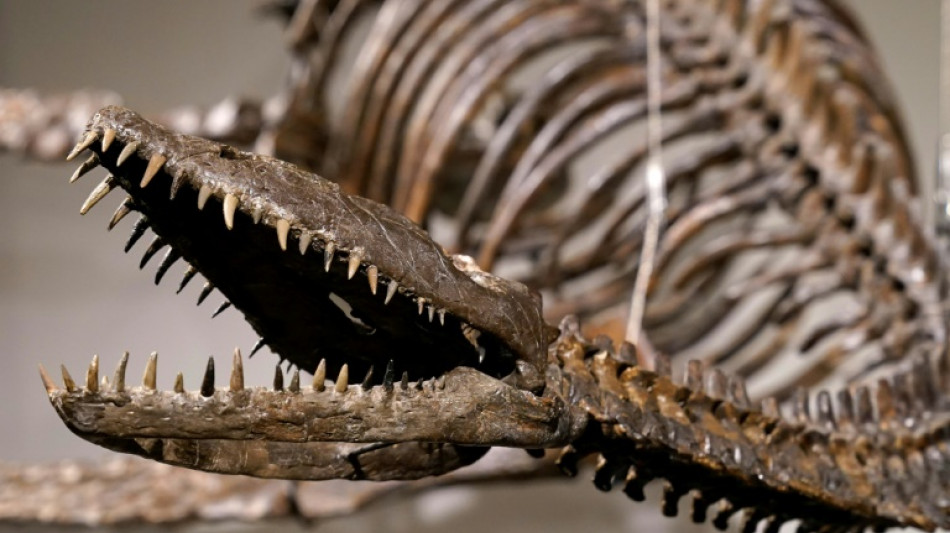
Dinosaur bones evoking Loch Ness monster to be auctioned: Sotheby's

Two mounted dinosaur skeletons -- one a fierce flying reptile of the kind seen in the "Jurassic Park" movies and the other evocative of the Loch Ness monster -- will be auctioned off this month in New York, Sotheby's said Tuesday.
The latter, called Nessie after the legendary elusive beast plying the depths of a Scottish lake, is estimated to draw between $600,000 and $800,000, Sotheby's said.
A kind of dinosaur called a plesiosaur, it was last auctioned in Paris in 2010 and at the time had come from a private museum in Germany.
The remains, which are nearly 11 feet (3.4 meters) long, were found in a quarry in England in 1990. The skeleton is about 75 percent complete and in exceptional condition, said Cassandra Hotton, Sotheby's head of Science and Popular Culture.
With its small head, long neck and flippers, the plesiosaur lived in the Lower Jurassic period about 190 million years ago.
"The history of the Plesiosaur is also intertwined with the elusive Loch Ness monster of Scottish folklore, as many have drawn morphological comparisons between the Plesiosaur and the infamous 'Nessie,' whose sightings stretch back to the sixth century," Sotheby's said in a news release.
This one will be auctioned on July 26 at a Sotheby's event focused on natural history.
Also on offer will be a flying reptile called a pteranodon, with a wing span of about 20 feet (six meters) and estimated at $4 million to $6 million.
Named Horus after an Egyptian god, this particular specimen was found in the US state of Kansas. At Sotheby's galleries it is displayed outstretched in a flying position.
"Other than standard bone joining and stabilization, almost all of the original fossil bones remain essentially unrestored, meaning that artificial filler was not used to replace missing bone sections," the auction house said.
It noted that this kind of creature made frequent appearances in the "Jurassic Park" film franchise.
Fossils from prehistoric animals are now big draws at auctions.
The record in terms of money was a Tyrannosaurus Rex skeleton that sold for $31.8 million in 2020.
T.Hancock--TNT